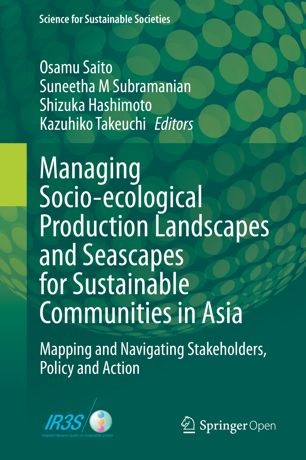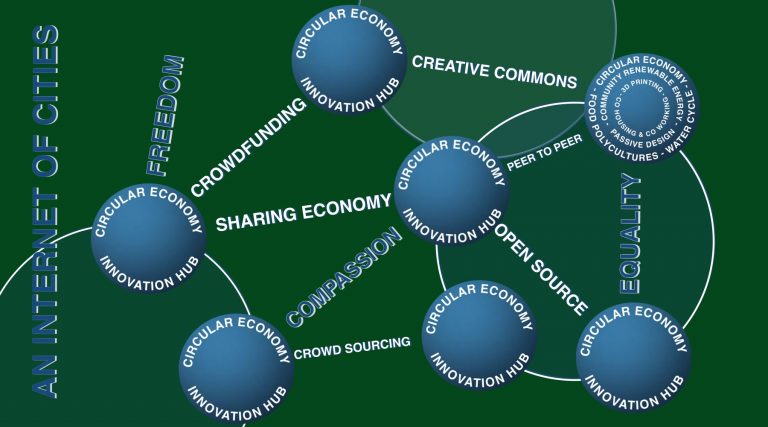IPSI Newsletter

TOPIPSI NewsletterIPSI Newsletter, Feburary 2020
IPSI Newsletter, Feburary 2020
2020.02.20
Dear IPSI members and friends,
Greetings from the IPSI Secretariat in Tokyo, Japan. IPSI and its members continue to stay active in a wide variety of projects and activities related to landscape and seascape approaches towards “societies in harmony with nature”.
This month’s newsletter contains another update on IPSI’s engagement in the process of developing a post-2020 global biodiversity framework, as well as announcements of a new book on landscape and seascape management, academic opportunities at UNU-IAS, and a recent case study from PolisPlan.
As always, we hope you will contact us to submit any new case studies or other information about your activities, or if you have any questions or comments.
IPSI Secretariat
Update on IPSI and the post-2020 framework process
IPSI partners and the Secretariat have been actively participating in the development of a post-2020 global biodiversity framework under CBD processes. We look forward to a busy year of contributing to this process, working to ensure that landscape approaches including the SEPLS concept are included as an integral part of future biodiversity policy. We have a few updates this month.
As mentioned last month the “zero draft” of the framework has been developed and made public by the CBD Secretariat. It is available for download here. Many of the concepts central to a landscape approach are included throughout the document, although landscape approaches are not specifically mentioned yet.
IPSI Secretariat staff members are looking forward to taking part in upcoming meetings related to this process:
- Thematic Consultation on Transparent Implementation, Monitoring, Reporting and Review for the Post-2020 Global Biodiversity Framework, 20-22 February 2020, Rome, Italy
- Second meeting of the Open-ended Working Group on the Post-2020 Global Biodiversity Framework, 24-29 February 2020, Rome, Italy
- Thematic Consultation on Capacity-building and Technical and Scientific Cooperation for the Post-2020 Global Biodiversity Framework, 1-2 March 2020, Rome, Italy
- Thematic Consultation on the Sustainable Use of Biological Diversity for the Post-2020 Global Biodiversity Framework, 30 March-1 April 2020, Bern, Switzerland
- Third meeting of the Open-ended Working Group on the Post-2020 Global Biodiversity Framework, 27-31 July 2020 (tentative), Cali, Colombia
If you are planning to attend any of these events, please let us know. We hope to see many partners and friends and work together to promote the Satoyama Initiative at these and other upcoming events.
For more information on the post-2020 process, please see the CBD website here.

New publication: Managing Socio-ecological Production Landscapes and Seascapes for Sustainable Communities in Asia
A book was recently published as an entry in Springer Nature's series "Science for Sustainable Societies" titled Managing Socio-ecological Production Landscapes and
Seascapes for Sustainable Communities in Asia: Mapping and Navigating Stakeholders, Policy and Action. The book is edited by UNU-IAS Prof. Osamu Saito and colleagues, and contains a great deal of information about SEPLS that should be of interest to readers within and beyond the IPSI community. It contains two chapters by staff of the IPSI Secretariat - "Lessons Learned from Application of the “Indicators of Resilience in Socio-ecological Production Landscapes and Seascapes (SEPLS)” Under the Satoyama Initiative" by William Dunbar et. al.; and "Place-Based Solutions for Conservation and Restoration of Social-Ecological Production Landscapes and Seascapes in Asia" by Raffaela Kozar et. al. - and other chapters by authors from IPSI members and others who will be familiar to many in the IPSI community.
Academic opportunities at UNU-IAS
UNU-IAS, host of the IPSI Secretariat, recently announced two opportunities for anyone interested in academic study in sustainability.
- UNU-IAS is now accepting applications for the JSPS–UNU Postdoctoral Fellowship programme for 2020. According to the UNU-IAS website, “Jointly organized by UNU-IAS and the Japan Society for the Promotion of Science (JSPS), the programme provides promising, highly qualified, young researchers with the opportunity to conduct advanced research relevant to the main thematic focus areas of the institute.” The application deadline is 21 February 2020. For more information on the JSPS-UNU fellowship, please see the UNU-IAS website here.
- UNU-IAS is also currently accepting applications for its master’s and doctoral degree programmes. Both programmes start in September 2020 and conducted all in English. UNU-IAS students benefit from the unique opportunity to study in central Tokyo at a global university within the framework of the United Nations. Students gain both academic knowledge and practical research skills by actively contributing to the institute’s policy-oriented research projects.
Deadlines for application and links:
28 February 2020: MSc in Sustainability
10 April 2020: PhD in Sustainability Science

Recent Case Study: PolisPlan
The IPSI Secretariat recently received a case study from partner organization PolisPlan, based in Australia, outlining a proposed “New Paradigm for Land Development: Creating Circular Economy Villages within a Distributed & Networked Global City”.
According to the case study, project proponents seek to advance the development of a new model for regenerative land development that integrates regenerative agriculture with the built environment. There is significant demand in the community for alternative ways of living that address global issues such as climate change, social inequality and the future of work. Current Council planning policies do not support and are often an obstacle to innovative projects such as ‘circular economy villages’ or labour intensive regenerative agriculture. PolisPlan’s project seeks to develop the strategic land use planning mechanisms that will enable these development approaches and so create a pipeline of projects. Rural Councils are also keen to attract investment and economic activity, hence this is a win-win for Councils and communities. Circular Economy Villages are ideal for rural and regional areas. They provide affordable housing options integrated with a regenerative food system, water & energy micro-grids as well as work opportunities for e-changers and digital nomads. The ability to increase biodiversity through carbon farming and improve the soil through carbon capture is part of the design. The initial stage of this project is advocacy, presentations and workshops to Council, council staff and the local community. Once support is established, a report is submitted to Council. Once the idea is included in an adopted strategy, the search for land and investors can commence.
For more information, please see the full write-up of the case study on the IPSI website here.
Contact
Please be sure to let the Secretariat know if there are any changes in your e-mail address or contact information.
Secretariat of the International Partnership for the Satoyama Initiative
United Nations University Institute for the Advanced Study of Sustainability (UNU-IAS)
5–53–70 Jingumae
Shibuya-ku, Tokyo 150-8925
Japan
Tel: +81 3-5467-1212
Fax: +81 3-3499-2828
Email: isi@unu.edu
If you have been forwarded this newsletter and would like to SUBSCRIBE, you can do so on the IPSI website here.


